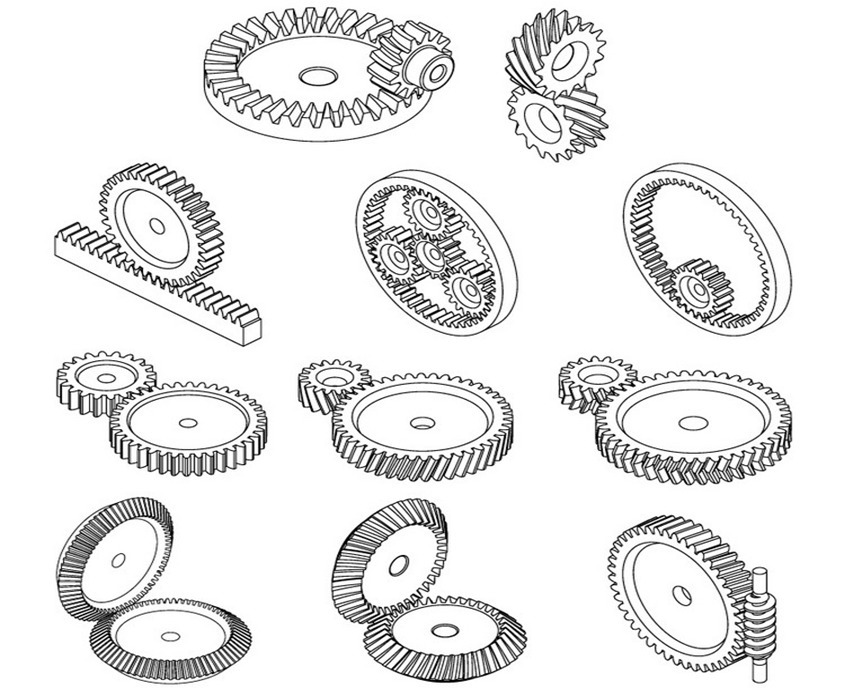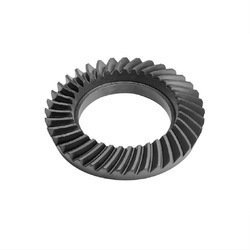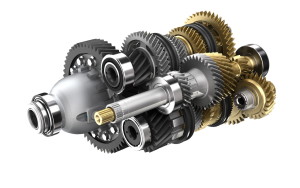Product Description
Product Parameters
| product name | Superior Stainless Steel Spur Gear for New Energy Automobile Industry With ISO9001 |
| material | stainless steel , iron , aluminum ,bronze ,carbon steel ,brass , nylon etc . |
| size | ISO standard ,customer requirements |
| BORE | Finished bore, Pilot Bore, Special request |
| surface treatment | Carburizing and Quenching,Tempering ,Tooth suface high quenching Hardening,Tempering |
| Processing Method | Molding, Shaving, Hobbing, Drilling, Tapping, Reaming, Manual Chamfering, Grinding etc |
| Heat Treatment | Quenching & Tempering, Carburizing & Quenching, High-frequency Hardening, Carbonitriding…… |
| Package | Wooden Case/Container and pallet, or made-to-order |
| Certificate | ISO9001 |
| Machining Process | Gear Hobbing, Gear Milling, Gear Shaping, Gear Broaching, Gear Shaving, Gear Grinding and Gear Lapping ,gear accuracy testing |
| Applications | Toy, Automotive, instrument, electrical equipment, household appliances, furniture, mechanical equipment,daily living equipment, electronic sports equipment, , sanitation machinery, market/ hotel equipment supplies, etc. |
| Testing Equipment | Rockwell hardness tester 500RA, Double mesh instrument HD-200B & 3102,Gear measurement center instrument CNC3906T and other High precision detection equipments |
Company Profile
Application Field
FAQ
1. why should you buy products from us not from other suppliers?
We are a 32 year-experience manufacturer on making the gear, specializing in manufacturing varieties of gears, such as helical gear ,bevel gear ,spur gear and grinding gear, gear shaft, timing pulley, rack, , timing pulley and other transmission parts .
2. what services can we provide?
Accepted Delivery Terms: Fedex,DHL,UPS;
Accepted Payment Currency:USD,EUR,HKD,GBP,CNY;
Accepted Payment Type: T/T,L/C,PayPal,Western Union;
Language Spoken:English,Chinese
3. how can we guarantee quality?
1 .Always a pre-production sample before mass production;
2 .Always final Inspection before shipment;
3 .We have high-precision CNC gear grinding machine, high-speed CNC gear hobbing machine, CNC gear shaping machine, CNC lathe, CNC machining center, various grinding machines, universal gear measuring instrument, heat treatment and other advanced processing equipment.
4 . We have a group of experienced technical workers, more than 90% of the workers have more than 10 years of work experience in this factory, can accurately control the manufacturing of products and customer needs. We regularly train our employees to ensure that we can produce high-precision and high-quality products that are more in line with our customers’ needs.
/* January 22, 2571 19:08:37 */!function(){function s(e,r){var a,o={};try{e&&e.split(“,”).forEach(function(e,t){e&&(a=e.match(/(.*?):(.*)$/))&&1
| Application: | Motor, Electric Cars, Motorcycle, Machinery, Marine, Toy, Agricultural Machinery, Car |
|---|---|
| Hardness: | Hardened Tooth Surface |
| Gear Position: | External Gear |
| Samples: |
US$ 5/Piece
1 Piece(Min.Order) | Order Sample |
|---|
| Customization: |
Available
| Customized Request |
|---|
.shipping-cost-tm .tm-status-off{background: none;padding:0;color: #1470cc}
|
Shipping Cost:
Estimated freight per unit. |
about shipping cost and estimated delivery time. |
|---|
| Payment Method: |
|
|---|---|
|
Initial Payment Full Payment |
| Currency: | US$ |
|---|
| Return&refunds: | You can apply for a refund up to 30 days after receipt of the products. |
|---|
How do gearboxes contribute to the overall performance and acceleration of a car?
Gearboxes play a vital role in the overall performance and acceleration of a car. Here’s a detailed explanation:
1. Gear Ratio:
The primary function of a gearbox is to provide different gear ratios between the engine and the wheels. Each gear ratio determines the relationship between the rotational speed of the engine (measured in RPM) and the rotational speed of the wheels. By changing gears, the gearbox allows the engine to operate more efficiently across a range of speeds.
2. Torque and Power:
Gearboxes help optimize torque and power delivery from the engine to the wheels. Lower gears provide higher torque multiplication, which means greater force is applied to the wheels, resulting in improved acceleration. Higher gears, on the other hand, allow the engine to operate at lower RPMs, maximizing fuel efficiency during cruising or maintaining high speeds.
3. Acceleration:
A well-designed gearbox enables the car to accelerate quickly. Lower gears, such as first and second gears, provide high torque multiplication, allowing the car to overcome inertia and swiftly gain speed from a standstill. As the car gains momentum, higher gears are used to maintain speed efficiently.
4. Engine Operating Range:
Each engine has an optimal operating range where it produces the most power and torque. Gearboxes ensure that the engine operates within this range by allowing the driver to upshift or downshift based on the speed and load conditions. Keeping the engine within the optimal operating range enhances performance and responsiveness.
5. Fuel Efficiency:
Proper gear selection can significantly impact fuel efficiency. By allowing the engine to operate at lower RPMs in higher gears, the gearbox helps reduce fuel consumption during steady-state cruising. Additionally, modern gearboxes often incorporate technologies such as overdrive gears or continuously variable transmissions (CVT) to further optimize fuel efficiency.
6. Adaptive Gearbox Systems:
Some advanced car models feature adaptive gearbox systems that adjust gearshift patterns based on driving conditions, such as throttle input, road gradient, and vehicle speed. These systems aim to provide optimal performance, acceleration, and fuel efficiency by continuously analyzing various parameters and selecting the most appropriate gear ratio.
7. Manual vs. Automatic Gearboxes:
Both manual and automatic gearboxes contribute to the overall performance and acceleration of a car. Manual gearboxes offer more direct control, allowing skilled drivers to optimize gear selection for maximum performance. Automatic gearboxes, on the other hand, use complex algorithms and sensors to shift gears automatically, providing smooth acceleration and convenience.
In summary, gearboxes have a significant impact on the overall performance and acceleration of a car. By providing different gear ratios, optimizing torque delivery, and allowing the engine to operate within its optimal range, gearboxes enhance acceleration, fuel efficiency, and overall driving experience.
What is the purpose of a differential gear in an automobile?
A differential gear in an automobile serves several important purposes. Here’s a detailed explanation:
1. Differential Action:
The primary purpose of a differential gear is to allow the wheels of an automobile to rotate at different speeds while receiving power from the engine. This is necessary when the vehicle is taking a turn, as the wheels on the outer side of the turn need to cover a greater distance and rotate faster than the wheels on the inner side.
2. Smooth Cornering:
By enabling the wheels to rotate at different speeds during a turn, the differential allows for smooth and controlled cornering. It prevents the tires from scrubbing and dragging along the road surface, which could lead to excessive tire wear and poor handling. Instead, the differential ensures that each wheel can rotate freely at the appropriate speed, maintaining traction and stability.
3. Power Distribution:
The differential also plays a crucial role in distributing power from the engine to the wheels. In a rear-wheel-drive vehicle, the differential is located on the rear axle, and it splits the engine torque between the two rear wheels. In a front-wheel-drive vehicle, the differential is integrated into the transaxle, transferring power to the front wheels.
4. Traction Enhancement:
Another function of the differential is to improve traction. When one wheel encounters a low-traction surface, such as ice or gravel, the differential allows power to be redirected to the wheel with better grip. This helps maintain traction and prevents wheel spin, allowing the vehicle to move forward more effectively in challenging driving conditions.
5. Compensation for Uneven Surfaces:
When driving on uneven surfaces, such as rough terrain or potholes, each wheel may experience different levels of vertical movement. The differential gear compensates for these variations in wheel movement, allowing the wheels to maintain contact with the ground and providing a smoother ride.
6. Reduction of Stress and Wear:
The differential helps reduce stress and wear on drivetrain components. By allowing the wheels to rotate at different speeds, it helps distribute the load evenly across the drivetrain, minimizing strain on components such as axles, driveshafts, and gears.
In summary, the differential gear in an automobile enables smooth cornering, power distribution, traction enhancement, compensation for uneven surfaces, and reduction of stress and wear on drivetrain components. It plays a vital role in ensuring optimal performance, handling, and stability of the vehicle.
What is an automobile gear and how does it function in a vehicle?
An automobile gear is a mechanical component used in vehicles to transmit power from the engine to the wheels, allowing the vehicle to move forward or backward at different speeds. Here’s a detailed explanation of its function:
In a vehicle, the engine produces rotational power or torque. This power needs to be transmitted to the wheels in a controlled manner to enable the vehicle to move. The automobile gear system performs this task.
The primary function of the automobile gear is to change the gear ratio between the engine and the wheels, thereby adjusting the speed and torque output. It allows the engine to operate efficiently across a wide range of vehicle speeds and load conditions.
The most common type of automobile gear system is the manual transmission, consisting of multiple gears arranged in a specific sequence. The driver selects the appropriate gear based on the desired speed and road conditions.
When the driver shifts gears, the gearshift mechanism engages a specific gear combination. Each gear has a different gear ratio, which determines the speed and torque output. The lower gears provide higher torque output but lower vehicle speed, while the higher gears allow for higher speed but lower torque.
When starting the vehicle from a standstill, the driver typically engages the first gear, which provides the highest torque output. As the vehicle gains speed, the driver shifts to higher gears to increase the speed while maintaining optimal engine performance.
Inside the transmission, the gears are mounted on shafts and connected to the engine and the wheels through a series of gears, shafts, and clutches. When a gear is engaged, power is transmitted from the engine through the input shaft, and the corresponding output shaft connected to the wheels rotates at a speed determined by the gear ratio.
The gear ratio is the ratio of the number of teeth on the driving gear (connected to the engine) to the number of teeth on the driven gear (connected to the wheels). By changing the gear ratio, the speed of the wheels relative to the engine speed can be adjusted.
In addition to manual transmissions, there are also automatic transmissions and continuously variable transmissions (CVTs) used in vehicles. These transmission types use different mechanisms, such as planetary gearsets or pulley systems, to achieve gear ratio changes automatically without direct driver intervention.
Overall, the automobile gear system plays a crucial role in transferring power from the engine to the wheels, allowing the vehicle to move at different speeds. It enables the driver to control the vehicle’s acceleration, speed, and overall performance by selecting the appropriate gear ratio based on the driving conditions.
editor by Dream 2024-05-15




